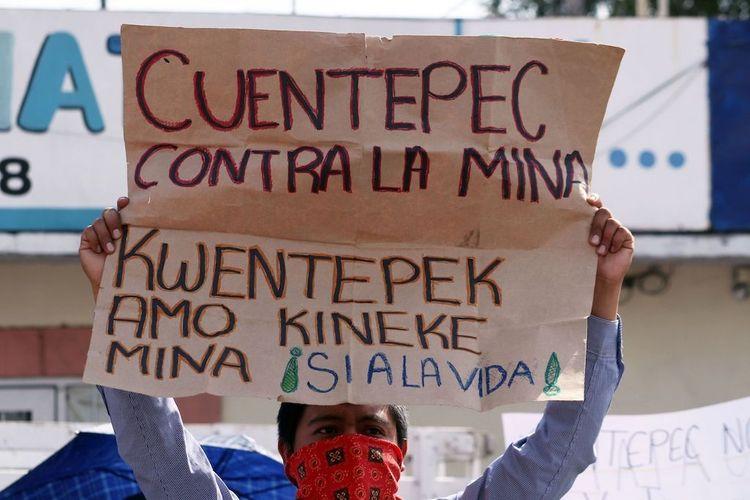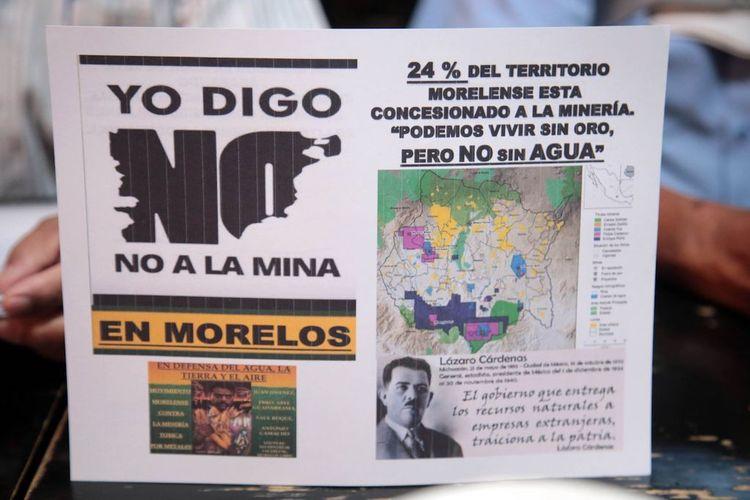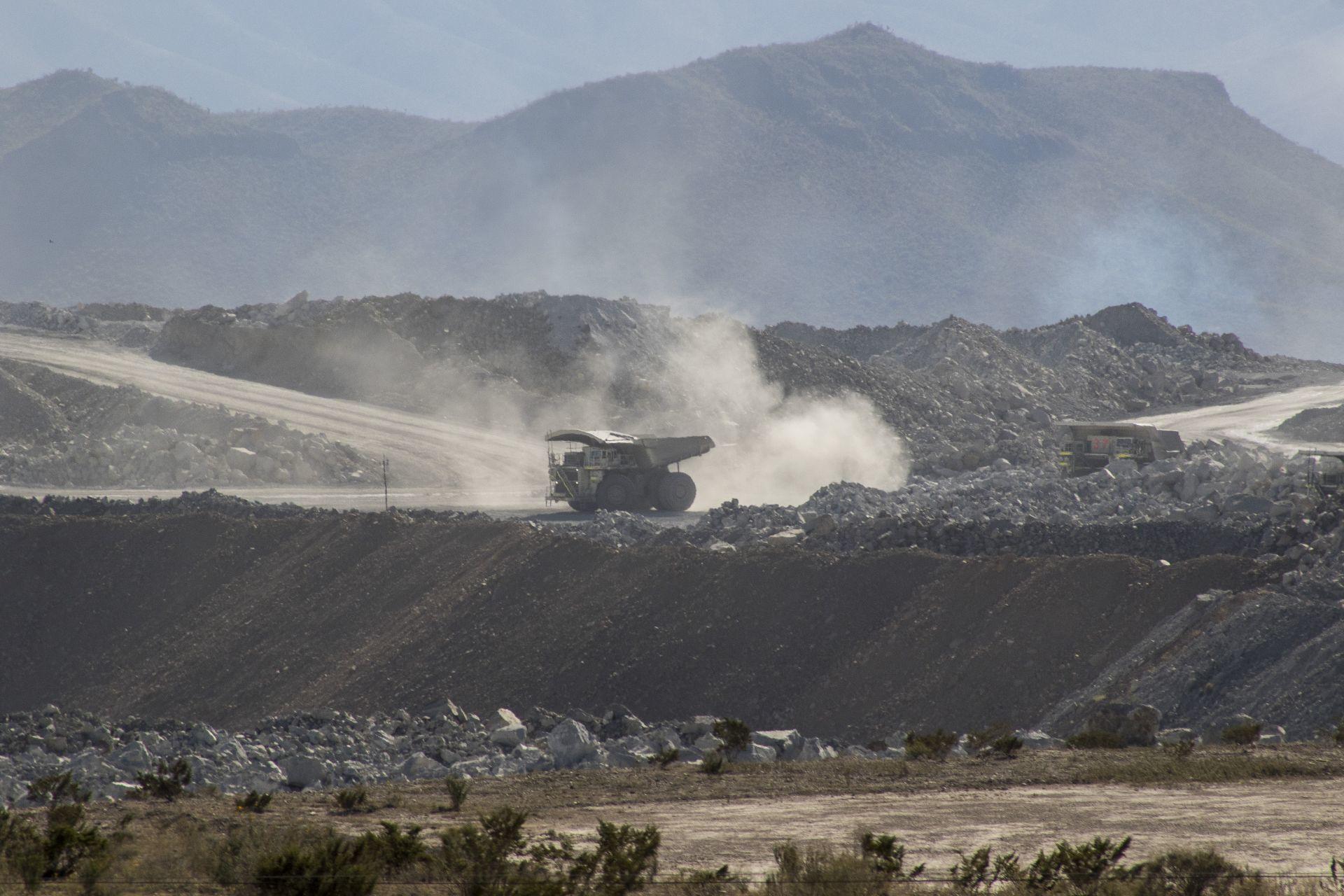In Mexico, there are more than 20,000 mining concessions registered and before the law, “mining is a public utility and a preferred activity. This is done to make things easier for mining projects,” said Dolores Rojas, coordinator of Socio-Ecological Transformation programs at the Heinrich Böll Foundation.
Among the federal administration's promises is not to grant more mining concessions. The last statement was made last November by President Andrés Manuel López Obrador, at his morning conference from Guanajuato.
In an interview with Causa Natura, Rojas shares what is a reality studied by the environmental sector: mining activity will always cause environmental damage and, consequently, to health.
Even, he described, “there are situations where it is irreversible. When we talk about open-pit mining, gold and silver, about missing hills and brutal modifications, how do you reappear the hill and the forest. It's irreversible.”
In Mexico, mining activity contributes 2.3 percent of Gross Domestic Product (GDP). Along with the hydrocarbons sector, it has been a preferred activity in the Mexican economy for three decades. It was in 1992, when the Mining Law was amended to classify it as a public utility and preferred over any other use or use of the land.
Modern mining can pose significant risks to air quality and soil deforestation, the amount of water and water reduction, as well as impacts on habitat and health, according to the Mexican Center for Environmental Law (Cemda).
“So, if we eliminate the nature of public utility and preferential activity that is in the law, it is easier to have supervision and damage control, because there will undoubtedly be damage. There is no sustainable mining, that's a myth. But you could have greater control over land management,” Rojas explained.
For the coordinator of the Heinrich Böll Foundation, this measure would be a pending step to “remove privileges and favouritism from mining projects”. A common position shared by affected communities, environmental organizations and human rights defenders.

March for Life “No to the Mine” on January 10 due to resistance from Cuentepec and Tetlama to demand that Temixco be declared a municipality free of mining concessions. Photo: Margarito Pérez Retana/ Cuartoscuro
—Considering the latest news about concessions to the mining sector, can we say that Mexico has the actions that will reduce its environmental impact?
We can say that it depends. It depends on which mining project it is, how it was started, when, if it is no longer in operation, if its closure was adequate, if there is follow-up, if the mitigation measures were complied with. We should look at each case because we cannot speak in the abstract.
What is a fact is that in open pit mining the damage is irreversible and there is no way to return to the previous situation. Everyone is going to have an effect, without a doubt, on everyone.
—To be able to talk about each case, tools are needed, mainly information. How does opacity influence companies and the mining sector?
There is opacity in some ways, but thanks to civil society and communities that are resisting mining projects, we have access.
Beyond this, what does exist is an execution deficit. The Environmental Impact Statement (MIA), a document requested by the Ministry of Environment and Natural Resources (Semarnat), which should be the guide where the effects are recorded and what will be done to mitigate them, has no follow-up. Nor did we find it documented anywhere.
What can be done with concessions, if others have not already been opened, is to start monitoring them, asking to see their research reports, compliance with the MIA, with their project development plans. And from there, communities begin to ask if it has been fulfilled.
— What about the legal framework that protects mining activity?
From the results that have been obtained, we see that those who violate the law the most are companies and different levels of government. While it is the communities that work the most for compliance with the law and that use legal causes to demand respect for their territories. They put in their amparos because they prosecute but they also exercise their right to demonstrate and to protest.
This is interesting because it is always the discourse of businessmen that they want “legal certainty”, while it turns out that they are not complying with the law, that it is mining companies or local governments or different orders of government that do not comply. And those who face criminalization, attacks and harassment are the ones who are protesting these irregularities.
In the report Views on the Territory: How Women and Men Face Mining, carried out by Women and the Environment in collaboration with the Heinrich Böll-Mexico Foundation, the study of the community of Carrizalillo, Guerrero, located a few kilometers from the mining complex 'Los Filos', stands out. This is an open-pit gold mining project by the Canadian company GoldCorp, opening the door to organized crime, migration and attacks on land defenders.
—From this perspective, what approaches await us regarding mining activity?
There are still things that can be done, of course. From my personal perspective, I would say that we need to rethink and review which minerals are necessary and which are not. I believe that the gold that is required for scientific or medical purposes, we already have it out there and is in ingots in bank reserves. There, motionless, and that could be used for scientific, medical purposes, and so on.
But hey, since we are trying to see more of everything, the first situation is that mining is a public utility and a preferred activity before the law. It's all done to make things easier for mining projects with the preferred activity. This could be removed and, in effect, assessed on a case-by-case basis the mining project to see which one is proceeding and which one is not.
Another problem is that there really is no difference in granting concessions for exploration or exploitation. This means that in a single movement I can explore and exploit without major problems, but in addition, the concession they give is for 50 years. These are concessions that are too long and can be renewed, that is a de facto privatization of natural assets throughout the territory.
Finally, there is the recognition of the right of indigenous peoples to decide on their territory, to which the Mexican State is obliged. This self-determination of the right to decide on the way in which they want to develop their territories must be made effective, that their participation be effective and that the decision be respected.

Bulletin of the Morelense Anti-Mining Movement for the damage to the Esperanza Silver mining company. Credit: Margarito Pérez Retana/ Cuartoscuro
—Finally, how can we continue to appeal to citizen awareness about the impacts of mining?
Well, I think it has to be clear what the impacts are. In addition to knowing that mining is in everything we consume, whether we need it or not. We have to start demanding that there be policies of no to disposable; no to planned obsolescence; no to the obligation to change every year the model of cell phone, car, screen, computer.
In addition, one policy that has to do with it is the recovery of electronic materials. Do what they call urban mining, not waste mining. I know that it sounds against the tide right now that they say that we have to activate the economy, but I don't know if living well has to do with earning more or, rather, with living better with quality air, water, food...
And although I think that individual actions are important, what is relevant and what will be the most rapid change are public policies, where citizens should also help us to demand that their representatives, their legislators, be required to change the Mining Law.



Comentarios (0)